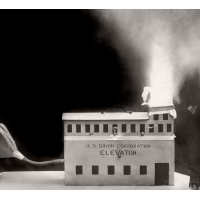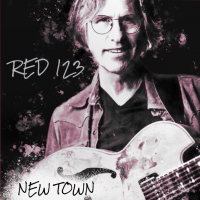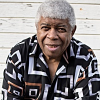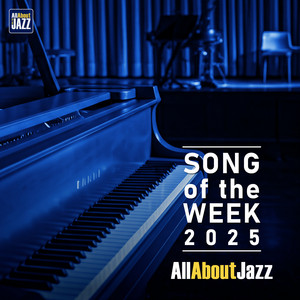Home » Search Center » Results: Ezz-Thetics
Results for "Ezz-Thetics"
John Coltrane: Chasin' The Trane Revisited

by Chris May
A high-tide moment in jazz history, John Coltrane's November 1-5 1961 engagement at New York's Village Vanguard was exhaustively documented on a series of Impulse albums during the 1960s and 1990s. Those discs have now, in autumn 2021, been supplemented by the Swiss-based ezz-thetics label's magnificent Chasin' The Trane Revisited. Before examining the new ...
Joe Harriott: Free Form & Abstract Revisited

by Mark Corroto
Call it partisanship or maybe musical chauvinism, but North American audiences have traditionally had little appreciation for jazz musicians from the United Kingdom or, for that matter, Europe. Rewind back to 1961, and explain why Americans were not hip to the Joe Harriott Quintet? His two releases, Free Form, released in 1961, and Abstract, in 1963, ...
Joe Harriott Quintet: Free Form & Abstract Revisited

by Chris May
A tiny island, Jamaica has punched far above its weight musically. Dub and reggae are the primary manifestations, but the island has also produced a disproportionately large number of notable jazz musicians, many of whom left during the late 1940s and 1950s to relocate to Britain, Jamaica's so-called mother country during the colonial era. Alto saxophonist ...
Gustafsson / McPhee / Håker Flaten / Nilssen-Love: The Thing She Knows...

by Chris May
The Hat Hut and ezz-thetics family of labels is in 2021 just three years shy of its fiftieth anniversary. This is a remarkable, perhaps unique, achievement for an independent company which has concerned itself exclusively with the avant-garde end of jazz and conservatoire music from the get go, and has done so with the highest (for ...
Sun Ra Arkestra: Heliocentric Worlds 1 & 2 Revisited

by Chris May
Heliocentric Worlds 1 & 2 Revisited presents in their entirety, newly and luminously remastered, the two albums which on release by ESP Disk in 1965 led, if not to actual commercial breakthrough for Sun Ra—who had been recording, obscurely, under his own name since the late 1940s—then at least to a heightened level of visibility for ...
Albert Ayler: New York Eye and Ear Control Revisited

by Mark Corroto
The backstory of New York Ear and Eye Control is a significant factor in the music and the direction free jazz took in the 1960s. Filmmaker Michael Snow commissioned Albert Ayler's trio with bassist Gary Peacock and drummer Sunny Murray to record a thirty-minute soundtrack for a movie, “Walking Woman," he had yet to film. As ...
Albert Ayler: New York Eye And Ear Control Revisited

by Chris May
The development of so-called free jazz in New York during the first half of the 1960s was topped and tailed by three landmark recordings: Ornette Coleman's Free Jazz (Atlantic, 1961), John Coltrane's Ascension (Impulse, 1966) and Albert Ayler's New York Eye And Ear Control (ESP, 1966). Of the three discs, only New York Eye And Ear ...
Albert Ayler Quartet with Don Cherry: European Recordings Autumn 1964 Revisited

by Chris May
Many attempts have been made to locate the source of tenor saxophonist Albert Ayler's muse in American history and culture. Among the less outlandish suggestions are the field hollers of slaves toiling on Southern plantations and the Pentecostal church's tradition of talking in tongues. Given the importance Ayler's parents placed on him attending church as a ...
Archie Shepp: Blase And Yasmina Revisited

by Chris May
The three albums tenor saxophonist Archie Shepp recorded in Paris for BYG Records during one week in August 1969 tend to get overlooked in the slipstream of the dozen or so he made in the US for Impulse earlier in the decade. More is the pity, for as Blasé And Yasmina Revisited so resoundingly attests, the ...
Cecil Taylor: Mixed to Unit Structures Revisited

by Chris May
This story has been revisited before, in the context of an Albert Ayler review, but good stories bear repeating, particularly when they are instructive ones. So here it is again... During a May 2021 interview with All About Jazz, the reed player Shabaka Hutchings was asked to name six albums which had made a more than ...




















